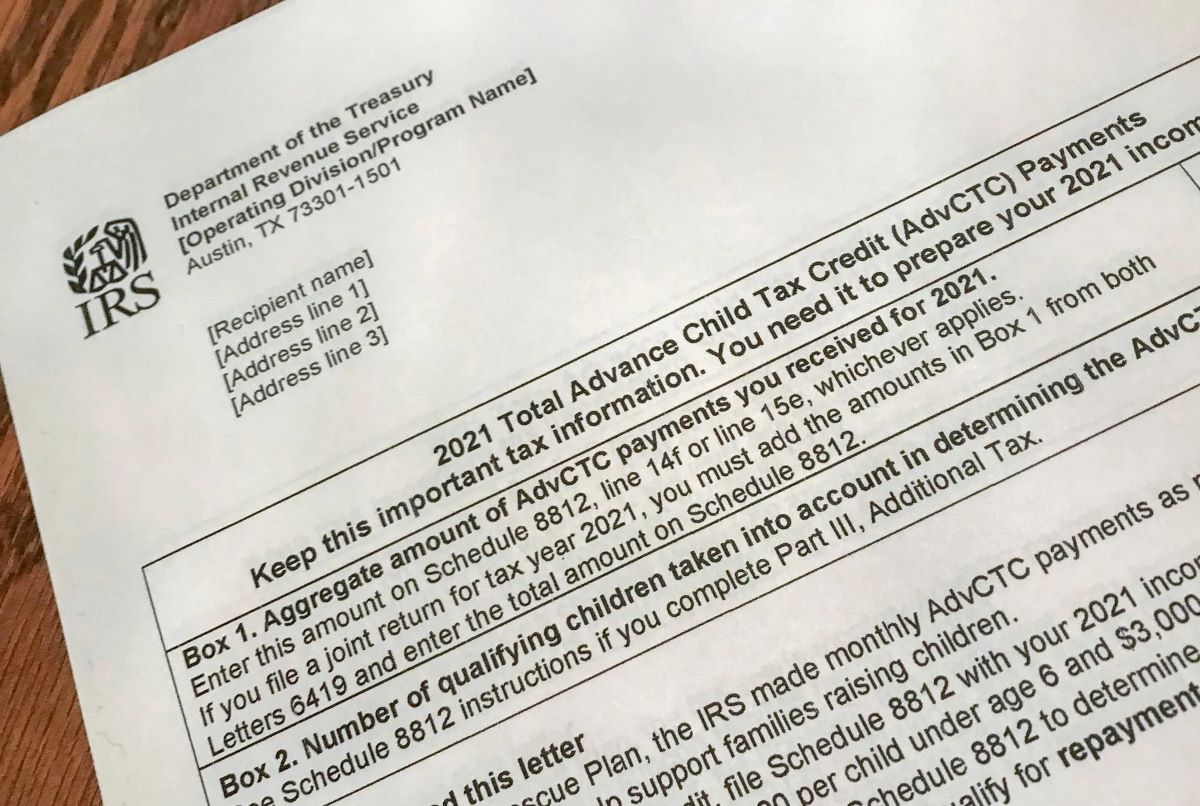

Finance
How To Use My Life Insurance To Buy A House
Published: October 16, 2023
Learn how to maximize your finances by leveraging your life insurance to purchase your dream home. Discover the steps to utilizing your policy for a seamless home buying experience.
(Many of the links in this article redirect to a specific reviewed product. Your purchase of these products through affiliate links helps to generate commission for LiveWell, at no extra cost. Learn more)
Table of Contents
Introduction
Welcome to the world of finance, where your life insurance policy can help you achieve your dream of buying a house. Life insurance is not just a safety net for your loved ones; it can also serve as a valuable asset that provides financial flexibility. In this article, we will explore how you can use your life insurance policy to turn your homeownership dreams into reality.
Life insurance is a contract between you and an insurance company that provides a death benefit to your beneficiaries in the event of your passing. But did you know that some life insurance policies also accumulate cash value over time? This cash value can be withdrawn or borrowed against, providing you with a source of funds that can be used for various purposes, including purchasing a home.
Before we delve into the details of using your life insurance to buy a house, let’s take a closer look at the different types of life insurance policies and how they accumulate cash value.
Understanding Life Insurance
Life insurance is a financial product that provides a death benefit to the beneficiaries named in the policy. It acts as a safety net, ensuring that your loved ones are financially protected in the event of your death. But it’s important to understand that life insurance can also offer additional benefits beyond just the death benefit.
Life insurance policies are typically divided into two main types: term life insurance and permanent life insurance.
- Term Life Insurance: Term life insurance provides coverage for a specific period, usually 10, 20, or 30 years. It offers a straightforward death benefit if you pass away during the term of the policy. Term life insurance does not accumulate cash value, making it a more affordable option for those seeking pure protection for their loved ones.
- Permanent Life Insurance: Permanent life insurance, as the name suggests, provides coverage for your entire lifetime. There are different variations of permanent life insurance, such as whole life insurance, universal life insurance, and variable life insurance. One key feature of permanent life insurance is that it accumulates cash value over time.
The cash value of a permanent life insurance policy grows over time due to a portion of your premium being invested by the insurance company. This cash value can be accessed by policyholders through withdrawals or loans, providing them with a potential source of funds for various financial needs, such as buying a house.
Now that we have a basic understanding of life insurance and its different types, let’s explore how the cash value in a permanent life insurance policy can be used to purchase a home.
Types of Life Insurance Policies
When it comes to life insurance, there are several types of policies to choose from. Each type has its own features and benefits, so it’s important to understand them before making a decision. Here are the main types of life insurance policies:
- Term Life Insurance: As mentioned earlier, term life insurance provides coverage for a specific period, typically 10, 20, or 30 years. It offers a death benefit but does not have a cash value component. Term life insurance is often chosen to cover specific financial obligations, such as mortgage payments or college tuition, during a specific time frame.
- Whole Life Insurance: Whole life insurance is a type of permanent life insurance that provides coverage for your entire life. It not only offers a death benefit but also accumulates cash value over time. Premiums for whole life insurance tend to be higher than term life insurance, but the policy builds cash value that can be accessed through withdrawals or loans.
- Universal Life Insurance: Universal life insurance is another form of permanent life insurance. It offers flexibility in terms of both the death benefit and premium payments. With universal life insurance, you can adjust the death benefit and the amount of premium you pay, within certain limits. It also accumulates cash value, which can be used to supplement retirement income or fund other financial goals.
- Variable Life Insurance: Variable life insurance allows policyholders to invest the cash value portion of their policy in various investment options, such as stocks, bonds, and mutual funds. With this type of policy, the cash value growth and death benefit may vary depending on the performance of the underlying investments. While variable life insurance offers potential for higher returns, it also comes with more investment risk.
It’s important to evaluate your financial goals, risk tolerance, and budget when choosing a life insurance policy. Consulting with a financial advisor can be helpful in determining the most suitable type of policy to meet your specific needs.
Assessing the Cash Value of Your Policy
If you have a permanent life insurance policy, such as whole life insurance or universal life insurance, it likely has a cash value component. Before considering using your life insurance to buy a house, you need to assess the cash value of your policy.
The cash value represents the savings portion of your policy and grows over time. It’s important to note that the cash value is different from the death benefit. The death benefit is the amount that will be paid out to your beneficiaries upon your passing, while the cash value is the amount that you can access during your lifetime.
There are a few key factors to consider when assessing the cash value of your policy:
- Premium Payments: The amount of premium you have been paying into your policy affects the cash value. The more premiums you have paid, the higher the cash value is likely to be.
- Rate of Return: Permanent life insurance policies typically accumulate cash value through investments made by the insurance company. The rate of return on these investments affects the growth of your cash value.
- Policies with Participating Features: Some permanent life insurance policies, such as participating whole life insurance, offer dividends to policyholders. These dividends can further increase the cash value of your policy.
- Policy Expenses: It’s important to be aware of any fees or charges associated with your policy. Some policies may have surrender charges or administrative fees that can impact the cash value.
To determine the exact cash value of your policy, you can contact your insurance company or review your policy statement. They will provide you with the current cash value and any applicable surrender fees, withdrawal restrictions, or potential tax implications.
Once you have a clear understanding of the cash value of your policy, you can then explore the option of using it to purchase a house. It’s important to consider the potential benefits and drawbacks before making a decision, which we will explore in the next section.
Using Your Life Insurance to Buy a House
If you have accumulated a significant cash value in your permanent life insurance policy, you may be able to leverage it to purchase a house. Here’s how you can use your life insurance to buy a house:
- Policy Loan: One option is to take out a policy loan against the cash value of your life insurance policy. A policy loan essentially utilizes your policy’s cash value as collateral. The loan amount will depend on the available cash value and the terms set by your insurance company. This loan can be used as a down payment or to cover other expenses associated with buying a home. Keep in mind that the loan amount and any interest will need to be repaid, or it will be deducted from the death benefit.
- Partial Withdrawal: Another option is to make a partial withdrawal from your policy’s cash value. This allows you to access a portion of the cash value without taking a loan. The withdrawal amount can be used towards your home purchase. It’s worth noting that a partial withdrawal may reduce the potential growth of the policy’s cash value and the death benefit.
- Surrendering the Policy: If you no longer need the life insurance coverage or if you have alternative sources of protection, you may consider surrendering the policy and cashing out the full cash value. This can provide you with a lump sum amount that can be used towards your home purchase. However, surrendering the policy means giving up the death benefit protection and potentially incurring surrender fees.
It’s important to carefully weigh the pros and cons of using your life insurance to buy a house. Consider factors such as the impact on your beneficiaries, the potential growth and return on the cash value, as well as the tax implications. Consulting with a financial advisor or insurance professional can help you understand the implications and make an informed decision.
Remember that utilizing your life insurance policy for a home purchase should be approached with caution and should align with your long-term financial goals and priorities.
Steps to Follow
If you’ve decided to use your life insurance to buy a house, here are the steps to guide you through the process:
- Evaluate Your Policy: Determine the cash value of your permanent life insurance policy and understand the terms and conditions associated with accessing the cash value, such as loans or withdrawals.
- Assess Your Financial Needs: Evaluate your financial situation and determine how much of your life insurance cash value you’ll need for the down payment or other costs associated with buying a house.
- Consult with Professionals: Engage the services of a financial advisor and insurance professional to help you navigate the complexities of using your life insurance to buy a house. They can provide guidance and help you make informed decisions.
- Review Options: Explore the various options available to access the cash value of your policy, such as policy loans or partial withdrawals. Understand the terms, potential interest rates, and repayment obligations associated with each option.
- Apply for a Loan or Withdrawal: Submit the necessary paperwork and applications to your insurance company to initiate the policy loan or partial withdrawal process. Ensure you understand the timelines and any associated fees.
- Set a Repayment Plan: If taking a policy loan, establish a repayment plan to ensure you pay back the loan amount, including any applicable interest, within the specified timeframe. This will help protect the death benefit for your beneficiaries.
- Complete the Home Buying Process: Once you’ve accessed the necessary funds from your life insurance policy, proceed with the traditional home buying process, including finding a suitable property, negotiating the purchase, and securing a mortgage, if required.
- Reassess Insurance Needs: As you use a portion of your life insurance cash value for a home purchase, reevaluate your insurance needs. It may be necessary to review your policy coverage and adjust it accordingly to ensure you still have adequate protection for your loved ones.
Each step in the process requires careful consideration and consultation with professionals. Taking the time to understand the implications and responsibilities associated with using your life insurance to buy a house will help you make informed decisions and set yourself up for long-term financial success.
Benefits and Considerations
Using your life insurance to buy a house can offer several benefits, but it’s essential to consider certain factors before making this decision:
Benefits:
- Access to Funds: Using the cash value of your life insurance policy can provide you with an immediate source of funds for a down payment or other home-buying costs.
- Flexibility: Depending on the terms of your policy, you may have options to take out a loan, make withdrawals, or surrender the policy to access the cash value, providing flexibility in how you use the funds.
- No Credit Check: Unlike traditional loans, using your life insurance cash value does not require a credit check or strict eligibility criteria, making it a more accessible option for those with less-than-perfect credit.
- Tax Advantages: In most cases, policy loans and withdrawals are not considered taxable income. This can be beneficial from a tax planning perspective, as you can access funds without incurring additional tax liabilities.
Considerations:
- Impact on Death Benefit: Any loans, withdrawals, or policy surrender will reduce the death benefit of your life insurance policy. It’s crucial to assess the impact on the financial protection for your beneficiaries and ensure you have alternative plans in place to safeguard their future.
- Repayment Obligations: If you choose to take a policy loan, it’s important to establish a realistic repayment plan to avoid defaulting on the loan. Failure to repay the loan, including any interest, could lead to the deduction of the loan amount from the death benefit.
- Opportunity Cost: Withdrawals or loans against your life insurance policy can impact the growth potential of the cash value and the overall performance of the policy. Consider the potential opportunity cost and evaluate if there are alternative sources of funds available.
- Long-Term Financial Planning: Using your life insurance cash value for a home purchase should align with your long-term financial goals. Consider how this decision may impact your retirement savings, other financial obligations, and overall financial stability.
It’s crucial to carefully weigh the benefits and considerations, taking into account your unique financial circumstances and future plans. Consulting with financial and insurance professionals can provide valuable insights and help you make an informed decision that aligns with your financial goals.
Conclusion
Using your life insurance policy to buy a house can be a viable option to access funds for a down payment or other related expenses. However, it’s important to approach this decision with careful consideration and thorough evaluation of the benefits and implications.
Before deciding to use your life insurance cash value, take the time to understand the terms and conditions of your policy, consult with professionals, and assess the impact on your financial goals and the protection for your loved ones.
While accessing the cash value of your permanent life insurance policy can provide you with immediate funds and flexibility, it also carries certain responsibilities. Repayment obligations, potential reduction in the death benefit, and the impact on the performance of the policy should all be carefully considered.
Ultimately, the decision to use your life insurance to purchase a house should align with your long-term financial plan and priorities. It’s essential to weigh the benefits and considerations, and to explore alternative sources of funds before making a final decision.
Remember to work with financial advisors and insurance professionals who can provide guidance and help you navigate the complexities of using your life insurance in this manner. By making an informed decision, you can utilize the potential benefits of your life insurance policy while still protecting the financial security of your loved ones.
Buying a home is a significant milestone, and ensuring that you have a solid financial strategy in place will set you on the path to success and homeownership.














